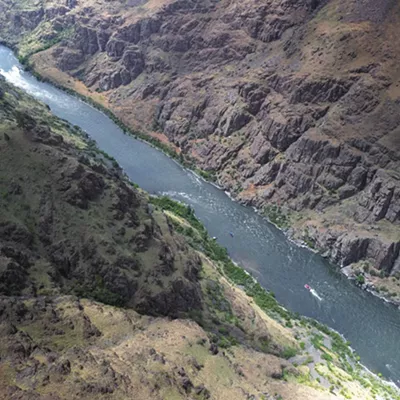This year, I resolve to learn to howl.
My friend Carter says that if I get it right, wolves will howl back. I ache for that kind of communion, connection. To embrace pure wildness. I want to howl with wolves, but I have my fears, too. I'm not afraid of wolves. I have been within a stone's throw. Watched one, shocked and still in awe and disbelief, as she cut the trail in front of us, tail down, purposefully uninterested. What I am afraid of is exposing the wolves. Because in the state where I live, that kind of song can be deadly. Politics and my own yearnings notwithstanding, the wolves would be safer if they stay quiet. From wolves to rattlesnakes who've adapted not to rattle, silence has been a way of survival for millions of years.
"I don't want anyone to know about my Native blood," the young poet said. "I don't want them to know I am Black."
I had said something similar in grad school. "But you are a Native woman," my professor said to me, "you can't erase that from your life experience any easier than you can hide it from your poetry."
But like this young poet, I was afraid. I live in a state that has repeatedly proven its disrespect for the female body. Its disdain for Native people, any people of color, has made itself famous, an attraction for those whose blatant prejudice makes Idaho as welcoming as the sundowner cities of the south. Living here, I have learned where I am safe and where I am not, but moreover I have learned that there are times when speaking my truth, speaking up, speaking would be dangerous.
Two summers ago, the last time I tried to beckon a howl back, I had cupped my hands to my mouth and let loose something between a domestic yip and a coyote cry. It lacked the soul of the wolf. The depth. That certain loneliness that comes from being sentient and singular in a body that can only share its experience through limited communication. Looking back, I remember the shyness of trying. The early attempts that sounded something like a soundtrack from a bad Western movie, sounds issued from my chest, rather than my depths. I may have been a little nervous, too.
The place where a true howl comes from is deep. Below the belly button and below the surface of mere sound. Finding that place, awakening that source, is no less difficult than trying to find the right words to say to someone beloved. No less terrifying than finally releasing a truth that I had hidden from myself and perhaps another. The howl, were I to finally find it, would, even as it might be returned, make me vulnerable, expose me as only releasing my true self can.
That honesty is why I write. Why I cross out line after line to look for the right words to express what living in this mixed race female body is like. To connect. "Aren't you afraid that something you write might bring harm to you?" the same poet asked. I am. And though I believe art should have some level of provocation, making it should never bring about physical harm or even the newer social harm, the kind that attacks and harms the psyche, that silences the writer through canceling or killing their voice.
The place where a true howl comes from is deep.
tweet this
There may come a day, despite how good my howl becomes and how many wolves walk the ridgelines and forests, when I do not receive a reply. Survival, the desire to live, is perhaps a stronger instinct than the need to communicate. There may also come a day when I stop trying to get the wolves to howl back, my fear for their safety greater than my desire to hear my call echoed. I don't want to feel that loneliness in the woods any more than I want to feel it in the words issued by the young poet afraid of the harm their truth brings.
My friend tells me that howling brings a pack together. Brings a family together, creates safety in the number of those who respond. We are not wolves; we should not fear that singing our deep truths, being vulnerable comes with the risk of being harmed, being silenced. This is why I am resolving to perfect my howl. I want to give that young poet the courage to howl back. To know he is not alone. To call my people together, that we may protect one another, that we may sing our truths. ♦
CMarie Fuhrman is the author of the collection of poems, Camped Beneath the Dam, and co-editor of two anthologies, Cascadia Field Guide and Native Voices: Indigenous Poetry, Craft, and Conversations. Fuhrman is the associate director of the graduate program in creative writing at Western Colorado University. She resides in West Central Idaho.

























